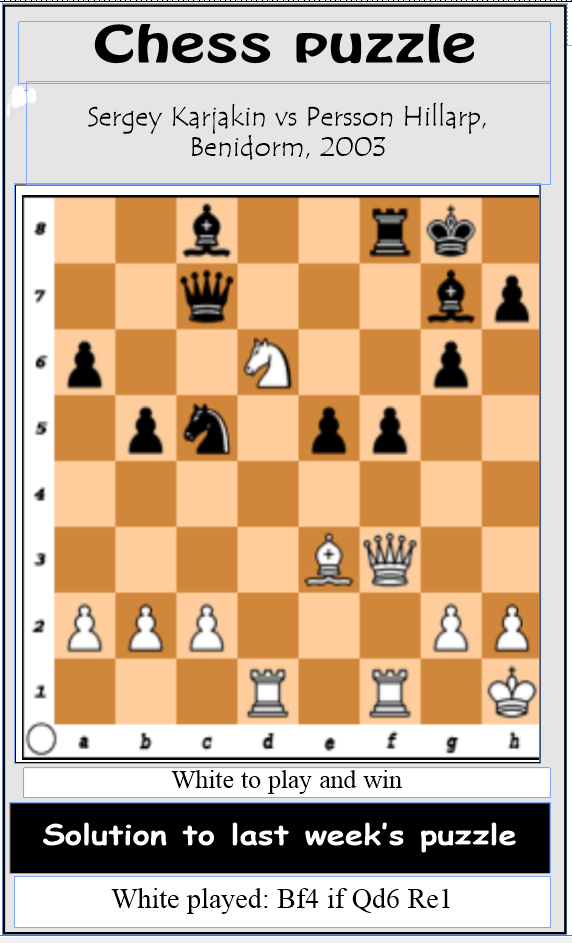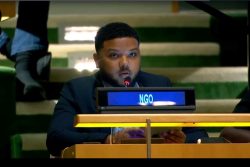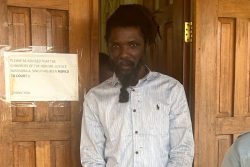When the chess history of the year 2015 is written, the FIDE World Cup must be mentioned. The tournament was a gruelling 128-player elimination affair which was contested over 25 days and concluded on Monday at Baku, Azerbaijan.
 The prominent chess nations were ably represented and the illustrious final centred around two Russian grandmasters, Sergey Karjakin and Peter Svidler. The match featured a combination of classical, rapid and blitz games and delivered some unorthodox moves riddled with unexpected blunders. The entire match was decisive, allowing no draws. Svidler, 39, drew first blood by winning the first two games, and needed only a draw to clinch the annual elitist title. But Svidler, Russia’s chess champion seven times and the winner of the world cup in 2011, slipped, similar to the man who walks the tightrope, and conceded the full point to his determined opponent. He missed wins two consecutive times in two consecutive moves. In game four, Karjakin out-manoeuvred Svidler to score a huge win and even the match. Finally, during the crucial blitz games set to declare a winner, Svidler experienced a crushing defeat to his younger countryman. The final score read: Karjakin 6, Svidler 4.
The prominent chess nations were ably represented and the illustrious final centred around two Russian grandmasters, Sergey Karjakin and Peter Svidler. The match featured a combination of classical, rapid and blitz games and delivered some unorthodox moves riddled with unexpected blunders. The entire match was decisive, allowing no draws. Svidler, 39, drew first blood by winning the first two games, and needed only a draw to clinch the annual elitist title. But Svidler, Russia’s chess champion seven times and the winner of the world cup in 2011, slipped, similar to the man who walks the tightrope, and conceded the full point to his determined opponent. He missed wins two consecutive times in two consecutive moves. In game four, Karjakin out-manoeuvred Svidler to score a huge win and even the match. Finally, during the crucial blitz games set to declare a winner, Svidler experienced a crushing defeat to his younger countryman. The final score read: Karjakin 6, Svidler 4.
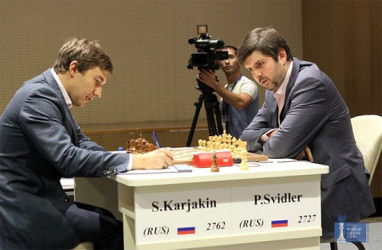
The 2015 World Cup was a qualification for the eight-player Candidates tournament scheduled to be held in 2016 to identify a challenger for world chess champion Magnus Carlsen. Five players are known: Karjakin and Svidler from Russia; Vishy Anand from India;, and Fabiano Caruana and Hikaru Nakamura from the United States. Veselin Topalov of Bulgaria and the Dutch grandmaster Anish Giri have favourable chances of qualifying on exceptional ratings, and the World Chess Organisation (FIDE) will decide on the required wild card. The winner of the Candidates will play Carlsen for the world championship crown. Anand won the last Candidates but lost to Carlsen during the world championship title match for the second time.
FIDE has released the monthly rating list, and hereunder are the ten highest-rated chess players on the planet:
- Magnus Carlsen 2850.0 Norway.
- Hikaru Nakamura 2805.8 USA.
- Vishy Anand 2803.0 India.
- Veselin Topalov 2802.4 Bulgaria.
- Fabiano Caruana 2791.6 USA.
- Anish Giri 2788.8 the Netherlands.
- Levon Aronian 2784.0 Armenia.
- Ding Liren 2780.6 China.
- Vladimir Kramnik 2779.2 Russia
- Maxime Vachier-Lagrave 2764.4 France.
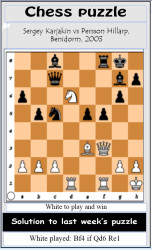 2015 has been a year of prime chess competitions. For the first time ever, the Grand Chess Tour was announced prior to the battle of the legends (Kasparov vs Nigel Short) in April in St Louis, Missouri. The Tour is an annual circuit of chess tournaments where players compete for multiple prize pools. The three tournaments featured in the Tour are the Norway Chess, the Sinquefield Cup and the London Chess Classic. Only the Classic remains, and that would be contested in December. The Tour was designed to promote competitive chess by including all of the top players and the world champion in a single circuit. Nine players compete in each tournament. A tenth wildcard player is selected by the organizing committee of each individual event. The six players who head the Tour and their points standings are as follows: Topalov 17, Nakamura 16, Aronian 15, Carlsen 14, Giri 13, and Anand 12. The London Chess Classic will complete the Tour in December. Each leg of the Tour carries a million dollar plus prize. There is also a substantial prize for the overall winner.
2015 has been a year of prime chess competitions. For the first time ever, the Grand Chess Tour was announced prior to the battle of the legends (Kasparov vs Nigel Short) in April in St Louis, Missouri. The Tour is an annual circuit of chess tournaments where players compete for multiple prize pools. The three tournaments featured in the Tour are the Norway Chess, the Sinquefield Cup and the London Chess Classic. Only the Classic remains, and that would be contested in December. The Tour was designed to promote competitive chess by including all of the top players and the world champion in a single circuit. Nine players compete in each tournament. A tenth wildcard player is selected by the organizing committee of each individual event. The six players who head the Tour and their points standings are as follows: Topalov 17, Nakamura 16, Aronian 15, Carlsen 14, Giri 13, and Anand 12. The London Chess Classic will complete the Tour in December. Each leg of the Tour carries a million dollar plus prize. There is also a substantial prize for the overall winner.
Chess game
The following games were played at the 2015 FIDE World Chess Cup and represent some of the final games of Russian grandmasters Svidler and Karjakin. The games follow the blitz format. Karjakin won handsomely.
White: Peter Svidler
Black: Sergey Karjakin
1. e4 e5 2. Nf3 Nc6 3. Bc4 Bc5 4. c3 Nf6 5. d3 d6 6. Nbd2 O-O 7. h3 Ne7 8. O-O Ng6 9. Bb3 a6 10. Re1 Ba7 11. Nf1 Be6 12. d4 Bxb3 13. Qxb3 Qc8 14. Ng3 Re8 15. Bg5 Nd7 16. Nf5 Ndf8 17. h4 h6 18. h5 hxg5 19. hxg6 Nxg6 20. Nxg5 Qd7 21. g3 d5 22. Qxd5 Qxd5 23. exd5 Rad8 24. Kg2 Rxd5 25. f4 f6 26. Ne4 Rdd8 27. fxe5 fxe5 28. d5 Rxd5 29. Nh6+ Kf8 30. Rf1+ Nf4+ 31. gxf4 gxh6 32. f5 Kf7 33. Rad1 Rg8+ 34. Kf3 c6 35. c4 Rd4 36. Rxd4 exd4 37. Rh1 Rh8 38. Rg1 Rd8 39. f6 Ke6 40. Rg7 Rd7 41. Rg8 d3 42. Re8+ Kf7 43. Rh8 Ke6 44. Rxh6 d2 45. f7+ Ke7 0-1.
White: Peter Svidler
Black: Sergey Karjakin
1. e4 c5 2. Nf3 d6 3. Bb5+ Nd7 4. d4 cxd4 5. Qxd4 a6 6. Bxd7+ Bxd7 7. c4 Nf6 8. Nc3 g6 9. O-O Bg7 10. Qd3 O-O 11. a4 Rc8 12. Rb1 Bc6 13. Re1 Nd7 14. b4 Nb6 15. b5 Bd7 16. Nd2 Be6 17. Nd5 Nxa4 18. Ba3 Qd7 19. h3 Rfe8 20. Rb3 a5 21. Qc2 Bh6 22. Nf3 Bxd5 23. exd5 Nb6 24. Re4 Nxd5 25. Bb2 Nf6 26. Bxf6 exf6 27. Rxe8+ Qxe8 0-1.
White: Sergey Karjakin
Black: Peter Svidler
1. e4 e5 2. Nf3 Nc6 3. Bb5 a6 4. Ba4 Nf6 5. O-O Be7 6. Re1 b5 7. Bb3 O-O 8. c3 d5 9. exd5 Nxd5 10. Nxe5 Nxe5 11. Rxe5 c6 12. d3 Bd6 13. Re1 Bf5 14. Qf3 Re8 15. Rxe8+ Qxe8 16. Nd2 Qe1+ 17. Nf1 Bg6 18. Bc2 b4 19. c4 b3 20. Bd1 Nb4 21. Bd2 Qe5 22. Bc3 Qc5 23. Bxb4 Qxb4 24. Bxb3 Qb6 25. Re1 Bc5 26. Ba4 Rd8 27. Rd1 Qxb2 28. Bxc6 Bh5 29. Rb1 Qxb1 30. Qxh5 Bxf2+ 31. Kxf2 Qb6+ 32. Ne3 Qxc6 33. Nd5 Qd6 34. g3 h6 35. Qe2 Rb8 36. Kg2 Kh8 37. h4 Qa3 38. Kh3 Qc1 39. Nf4 Qb2 40. Qe7 Qb7 41. Qe5 Qd7+ 42. Kh2 Kg8 43. Qxb8+ 1-0.
White: Sergey Karjakin
Black: Peter Svidler
1. Nf3 Nf6 2. c4 c5 3. e3 g6 4. d4 Bg7 5. d5 O-O 6. Nc3 d6 7. h3 e6 8. Be2 Re8 9. Nd2 Na6 10. dxe6 Bxe6 11. O-O d5 12. cxd5 Nxd5 13. Nxd5 Bxd5 14. Qc2 Nb4 15. Qb1 Qe7 16. a3 Nc6 17. a4 Qe6 18. Ra3 c4 19. Re1 Rad8 20. a5 Bf8 21. Ra4 Ne5
22. e4 Bc6 23. Rxc4 Rxd2 24. Bxd2 Nxc4 25. Bc3 Nd6 26. f3 Bg7 27. Bxg7 Kxg7 28. Qd3 Qe5 29. Qd2 a6 30. Rd1 Nb5 31. Qb4 Nc7 32. Qb6 f5 33. Bd3 Rd8 34. exf5 gxf5 35. Kf2 Qd4+ 36. Qxd4+ Rxd4 37. Ke3 Ne6 38. Rc1 f4+ 39. Ke2 Rb4 40. Bxa6 bxa6 0-1.
